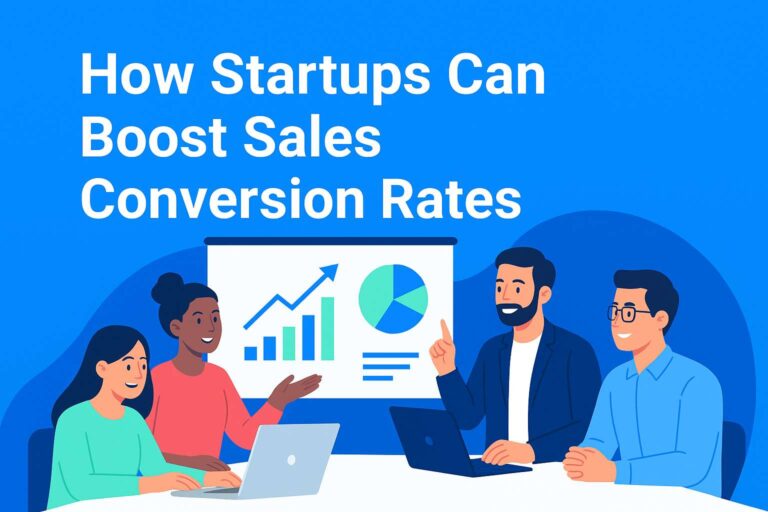Petrolheads, Avert Your Eyes…
If a B2B tech startup takes on the challenge of selling electric vehicles (EVs), the process would be fascinating to observe. After all, modern EVs are essentially computers on wheels, packed with software, flatscreens, data-driven performance metrics and connectivity features. Selling an EV today is more akin to selling enterprise software than a traditional car. EVs, particularly high-end ones, are effectively “Software Defined Vehicles,” or as I like to refer to them, white goods with a software layer that dictates much of their value. Just like enterprise tech solutions, the real sales effort is more about long-term value, operational efficiency and differentiation than just “buy it and drive it.”

Challenger Vehicles
So, how would a B2B tech startup tackle the task of marketing and selling EVs? Well, much like enterprise software, most EVs are purchased by businesses in the form of fleet buyers. There are a small number of private buyers by comparison, but private sales seem to have stalled in many major markets due to challenging circumstances. Interestingly, hybrids with petrol or diesel engines are now the fastest growing category compared to pure electric. This would present a challenge to any organisation and here we examine what EV manufacturers can learn from the tech industry.
The Initial Pitch: “Our EV is a Game Changer”
Every B2B tech startup worth its salt kicks off with an elevator pitch and naturally, they’d approach selling EVs the same way. The conversation may start something like this, “Introducing the E-Pro 2000, the first Software Defined Vehicle that revolutionises transportation, delivering a sustainable, scalable and seamless driving experience. With over-the-air updates and fully integrated IoT capabilities, it’s more than a car, it’s an innovation platform, with wheels!”
Taken for a Ride
Of course, in this tech-laden pitch, the prospect, be it a business fleet buyer or a family, would nod politely while internally asking, “Is it reliable?” or, “Will I ever get stuck on a long road trip because the range is only good in ideal conditions?” Tech startups love to build excitement by over-promising on innovation, but sometimes they forget that the audience, be it CIOs or parents looking for a family-friendly SUV, wants to know how the product will solve their real-life problems. Just like selling enterprise software, selling an EV will need to address a fundamental human truth that people want simplicity, not a 50-slide presentation on the quantum possibilities of a software update.
The Family as the Buying Team: “We Need to Align Stakeholders”
In B2B tech sales, marketing is directed at decision-makers or buying committees. For the family looking to buy an EV, this approach could work wonders. The parents, of course, are the equivalent of the C-suite executives who make the final decision. The kids? The product end-users are hyper-focused on whether the back seats have screens and charging ports for their devices.
A B2B Tech Startup Might Organise the Sales Pitch Like This:
1. The CFO (Mum)
She’s worried about cost and ongoing expenses. Show her a pie chart that compares the long-term savings of an EV with the ever-increasing cost of fossil fuels. She’ll love a good TCO (total cost of ownership) analysis and discount rate on future cash flows, but don’t mention the scary depreciation curve and cost of replacement batteries.
2. The CTO (Dad)
He’s all about the tech. He wants to know how often the car’s software updates, whether it integrates with his smart home devices and if it has autonomous driving capabilities. Throw in a few buzzwords like machine learning, edge computing and AI-driven route optimisation algorithms to win him over.
3. The End-Users (Kids)
Focus on the in-car entertainment system, how smooth the ride is and how they can watch YouTube during long drives. They won’t care so much about range anxiety or battery degradation; they just want to stream TikTok on the go.
The Software Defined Vehicle
Just as a B2B tech startup would highlight its SaaS offering as scalable, customisable and future proof, the same tactics would be applied to promote the EV as a Software Defined Vehicle (SDV). They’d emphasise that:
- The EV’s operating system gets over-the-air updates, which means your car will only improve with time, unlike a traditional car that just gets old.
- The car’s real-time diagnostics monitor battery health, motor performance and even predict when you’ll need to recharge. Who doesn’t need more notifications for their already notification-overloaded life!
- Integrated IoT means your EV is part of your smart home ecosystem, reminding you to charge it overnight when electricity rates are lower.
Here’s where the B2B tech mindset might get ahead of itself. Software-defined or not, at the end of the day, the customer still needs a functional vehicle to get them from A to B, without needing a PhD in software engineering to operate it.
Addressing Range Anxiety Fears
In tech sales, there’s always that lingering concern about downtime, bugs and integration issues. When it comes to EVs, range anxiety is the EV equivalent of software downtime. Sure, your EV might be a technical marvel, but what if you’re miles from a charging station? Just like a tech company emphasising reliability and uptime, EV marketers would have to address range issues head-on.
To tackle this, a B2B tech startup might create a customer success team that offers 24/7 remote support. They’ll remind customers that the software updates will optimise battery efficiency and even recommend strategic charging stops during long trips. However, tech marketing tends to overcomplicate, and let’s be honest all people really want to know is, “Will it get me there without needing a tow truck?”
A Not So Small Environmental Consideration
EVs are mis-sold today as being environmentally friendly, as fossil fuels are often used to power the electricity grid that manufactures and charges them. However, the biggest issue is the batteries. It’s a bit like selling cloud services as the environmentally responsible choice, though we all know data centres aren’t exactly eco-friendly, so selling EVs requires some finesse. The ideological and government-sponsored push toward EV adoption is driven by promises of cleaner air and greener transportation. In truth, those precious batteries present a moral dilemma. Disposable EVs can never be anything other than an environmental disaster.
Read about the challenges of battery recycling: “The Hard Truth About EV Battery Recycling.”

You may want to read: “5 Step Guide to Crafting Your Problem Statement.”






